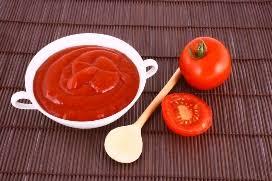Everything, it seems, goes in cycles. For years we’ve been told that fat is bad and that we should avoid it whenever possible, which led to a host of low-fat and non-fat products —cookies that had less fat than their conventional counterparts, but much more sugar and often even more calories. Now it’s added sugar that’s the nutritional bête noir, and we’re being warned that it’s ‘hiding’ in foods you don’t expect — ketchup, for example.
But let’s face it folks, how can it be hiding when it’s listed right on the ingredients label? Still, added sugars are one of the foci of the latest culture wars. And for some, that amounts to an ingredient that must be expunged from our diets with nearly religious fervor. Thus we see The New York Times instructing us on how to “Stop Eating Sugar” (Just above an ad for a “Dark Chocolate Bacon Bar –just sayin’).
The article implies that following in the footsteps of Big Tobacco, Big Sugar is seeking to entrap us into subsisting only on their product. It’s a meme that’s getting more than a little worn. According to such folks, any industry that seeks to maximize its products is evil — and in the case of the sugar industry, it is selling a product that just might be as dangerous as smoking. But we know it isn’t. Let’s be clear, the tobacco industry was selling products that injured health when used normally; this is not sugar by any means.
It’s true that Americans have been consuming a lot of sugar, in some cases well over 10 percent of calories, as shown in the figure (1)._And It’s also true that some of those added sugars are in foods where we wouldn’t expect to find it — but folks, it’s listed on the ingredient label — by law.
So if you want to learn about the sugar in your diet, that information is readily available. And if you want to see what it would be like to remove all added sugars from your diet, that’s possible too — the NY Times article suggests how to do it.
But unless you’re really over-indulging in sugary foods and beverages, don’t expect to see such an elimination diet having a noticeable effect on either your waistline or your health.
1) Ervin RB, Ogden CL. Consumption of added sugars among U.S. adults, 2005–2010. NCHS data brief, no 122. Hyattsville, MD: National Center for Health Statistics. 2013.




